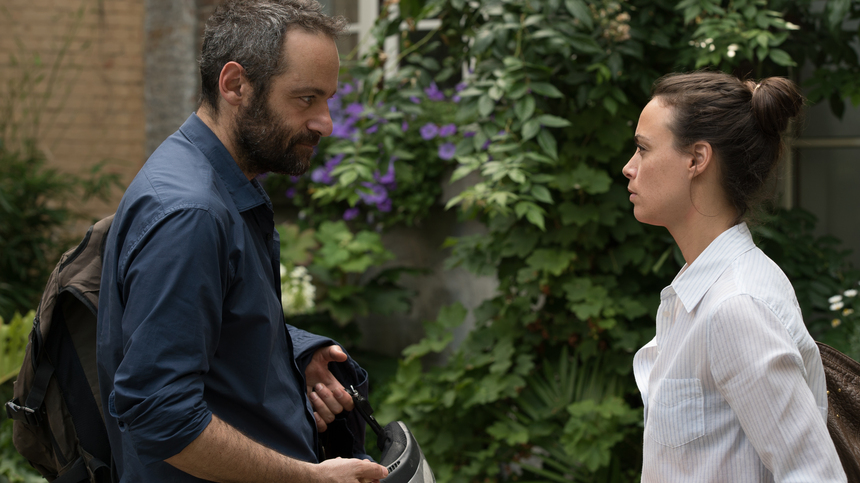Review: AFTER LOVE, The Anger and Sadness of Divorce
Bérénice Bejo and Cedric Kahn star in a family drama, directed by Joachim Lafosse.

A while ago, a judge in the UK proposed to make it harder for people to get married, and easier for them to get divorced. The logic being, that too many people get married without properly thinking it through; love is not enough to sustain a long-term relationship, and too many factors, such as money, can ruin a relationship. In Joachim Lafosse's After Love, money indeed is the culprit that finally brings what was once a happy marriage to ruin.
So how do you start to untie such as relationship, when not only money troubles, but the care of children is involved? Unlike most romantic dramas, Lafosse looks not so much to the love that once was but the strain and often tedium of ending a marriage. While at times the film itself gets a bit repetitive, this is a reflection of how such relationships themselves can seem to go in perpetual circles of blame.
Marie (Bérénice Bejo) and Boris (Cedric Kahn) are going through a painful and messy divorce; due to his lack of funds, Marie allows Boris to stay in the guest room of their house. This inevitably creates problems, as Boris doesn't stick to the rules of his presence, and Marie can barely stand the sight of him. As their financial arguments spill over into their role as parents, the love they once felt seems irrevocably gone.
It's almost entirely a single location film; the audience is the observer in the corner of the (former) family home, watching what was once a space likely filled with laughter now fraught with tension you could cut with a knife. The familiar movements of childcare are still there: coats on hooks, toys to be put away, dinner to be prepared. But as Boris' presence is maddening to Marie, these movements become mechanical; as Boris (not happy with the split) becomes more imposing in his fight for what he believes is his. Lafosse lights the scene as he would if this were a happy family, not allowing any shadow to give way to showing the growing hatred and pain.
Nothing shows people's true colours more than money and the different financial status that some couples have. Boris knows that Marie holds the financial power, and he feels emasculated. Kahn plays this in both small and large gestures: knicking cheese meant for his daughters, or being loud and obnoxious when she tries to have a brief respite with her (formerly their) friends. Bejo's Marie is a complexity of emotion and rage; love has turned to almost hate, and even her heart is caught up in the connection the couple once had, even if she cannot bear the financial, and hence the psychological, burden of carrying the family.
At a certain point, the story becomes slightly tedious, as arguments tend to go in circles. But this is perhaps the point, and those who have been through a difficult seperation might appreciate it: when argument go back to the same point that cannot be resolved, far past the breaking point.
A family drama that, unlike for example most romantic dramas, deals with the daily routine of break-ups and the minute details that must be taken care of, After Love is a heart-wrenching film that looks at those questions not asked enough when building a life with another person.
After Love will be available in the USA on VOD on Tuesday, November 21st, on ITunes, Google Play, Vudu, and Amazon, as well as on DVD.







